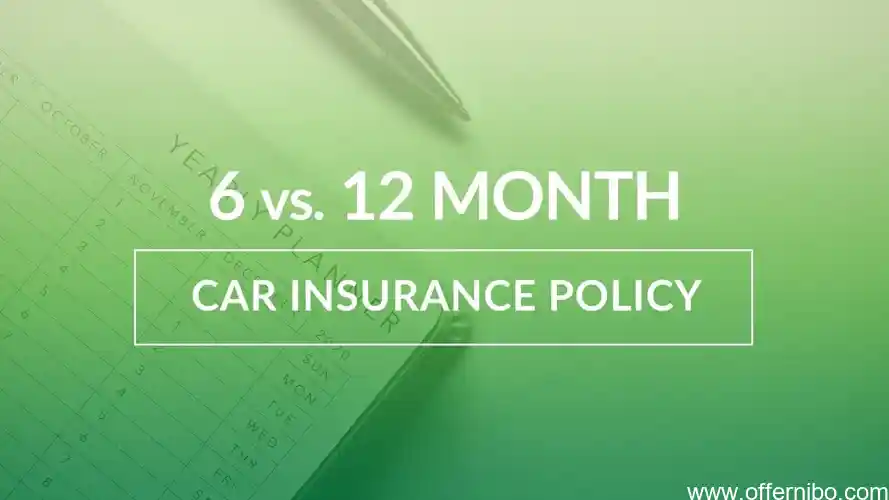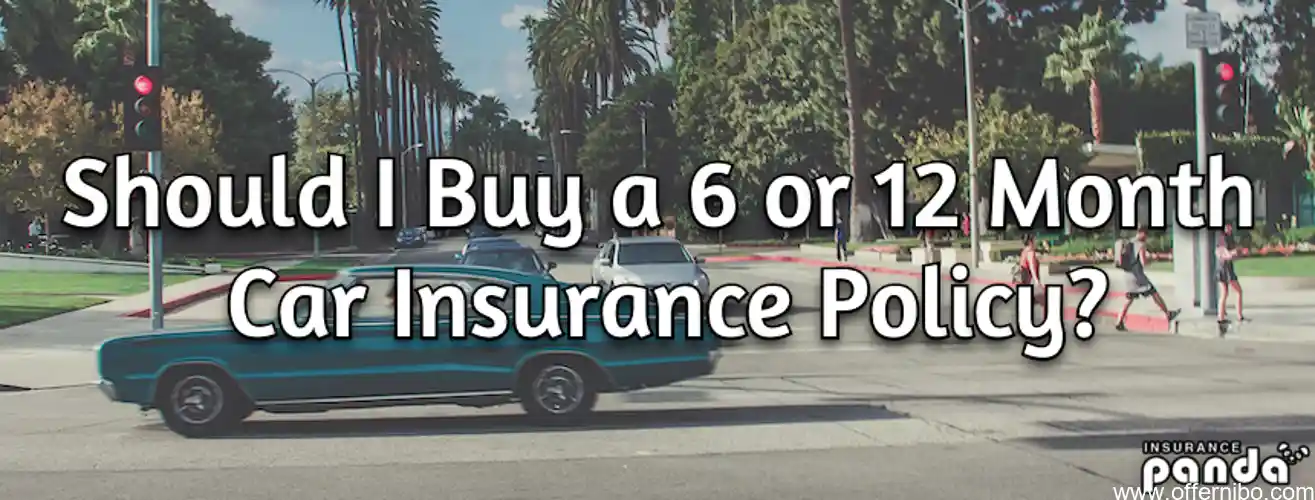In the realm of personal finance, the intricacies of car insurance can leave many perplexed, particularly when it comes to its seemingly arbitrary duration of six months. Understanding the reasoning behind this timeframe is crucial for informed decision-making and ensuring adequate protection for your vehicle. As we delve into the intricacies of car insurance, I will guide you through the labyrinth of state regulations, renewal processes, and advantages of 6-month policies. Together, we will unravel the mystery behind this peculiar characteristic, empowering you to make wise choices that safeguard your vehicle and uphold your financial well-being.
Why is Car Insurance Only 6 Months?

Sure, here is a paragraph about the heading “Why is Car Insurance Only 6 Months?” within 150 words and using the main focus keyword “why is car insurance only 6 months”:
Why is Car Insurance Only 6 Months?
Car insurance is typically sold in 6-month policies. There are a few reasons for this. First, it allows insurance companies to spread out the risk of insuring you over a longer period of time. This helps to keep your rates more stable. Second, it gives you the opportunity to shop around for a better rate every 6 months. If you find a better deal, you can switch insurance companies without having to pay a cancellation fee. Finally, it helps to keep your insurance coverage up to date. As your car ages and your driving habits change, your insurance needs may change as well. A 6-month policy ensures that your coverage is always up to date.
Understanding Car Insurance Timeframes

When it comes to car insurance, you may have noticed that policies typically run for a period of six months. But have you ever wondered why this is the case? Understanding the timeframes associated with car insurance can help you better manage your policy and stay protected on the road. Let’s dive into the reasons behind the six-month duration and explore the implications for you as a driver.
Policy Period Duration
Understanding car insurance can feel like navigating a maze of policies and jargon. One aspect that might leave you scratching your head is why your car insurance is often only for six months. Let’s shed some light on this curious practice. Car insurance policies have a defined time period known as the policy period. In many cases, this period lasts for six months, but in some states, it can be for a year or even longer. The reasoning behind the six-month duration varies depending on your state’s regulations and the specific insurer you’re dealing with.
Specific State Regulations

Specific State Regulations:
Laws governing car insurance vary from state to state, including the duration of policies. Some states mandate that policies be issued for six-month terms, while others allow for 12-month or even longer policies. This variation stems from historical practices, insurance industry preferences, and state insurance regulations. Understanding the specific regulations in your state is crucial, as they impact the timing of renewals, coverage limits, and premium payments. By adhering to state regulations, you ensure that your car insurance coverage is both compliant and tailored to your individual needs.
Variations in Renewal Intervals by State
When it comes to car insurance, most of us are familiar with the standard 6-month policy duration. But have you ever wondered why this is the case? The answer lies in a combination of specific state regulations and practical considerations. In the United States, each state has its own insurance laws and regulations, and these can vary significantly from state to state. Some states, like California and Florida, have specific laws that require car insurance policies to be issued for a period of 6 months. These laws are in place to help ensure that drivers maintain continuous coverage and to protect them from potential gaps in their insurance. In other states, such as Texas and New York, there are no specific laws governing the duration of car insurance policies. However, most insurers in these states offer 6-month policies as a standard option, as it aligns with the typical renewal cycle for vehicle registrations and inspections.
Renewal Process and Implications

Renewal Process and Implications
The renewal process for car insurance typically involves reviewing your driving history, claims, and overall risk factors. Based on this assessment, your insurer will determine your new premium. If your driving record has remained clean and you’ve avoided filing claims, you may be eligible for a renewal discount. However, if you’ve had any accidents or traffic violations, your premium could increase. It’s important to maintain a safe driving record and stay in touch with your insurer to understand how your actions impact your policy and renewal costs.
Renewal Premiums and Adjustments
When it comes to renewing your car insurance policy, you might be curious about why it’s typically renewed every six months instead of annually or even monthly. This approach to car insurance policies is a combination of industry practices, state regulations, and practicality. By understanding the renewal process and its implications, you can better appreciate how it affects your coverage and finances.
Advantages and Considerations of 6-Month Policies
When it comes to car insurance, I understand your confusion about the seemingly short 6-month policy duration. But let’s unpack the advantages and considerations that make this timeframe a sensible choice. Firstly, it allows insurers to assess your driving behavior and adjust premiums accordingly. This renewal process ensures that your rates reflect your risk profile. Moreover, shorter policies give you greater flexibility to switch insurers if you find a better deal or experience changes in your driving habits. You can also spread out the cost of insurance over two smaller payments, which can be easier on your budget. However, it’s essential to understand that 6-month policies may result in slightly higher premiums compared to annual policies. So, weigh these factors carefully to determine what works best for your situation.
Benefits for Drivers and Insurers
Before jumping into the pros and cons of 6-month car insurance policies, it’s crucial to understand why this duration is prevalent in the first place. Various factors contribute to this practice, including state regulations and the industry’s standard operating procedures. Delving into these details will provide a deeper context for the advantages and considerations associated with such policies.
Factors to Consider
6-month car insurance policies offer advantages for both drivers and insurers. Drivers may find it easier to budget for premiums spread over two shorter terms rather than paying a lump sum for a year-long policy. This can be especially beneficial for those on tight budgets or who have experienced financial hardship. Additionally, 6-month policies allow you to adjust your coverage more frequently, which can be helpful if your driving habits or needs change. On the insurer’s side, shorter-term policies reduce their risk exposure and allow them to spread out their underwriting expenses over a more extended period. However, it’s important to weigh these advantages against the potential drawbacks, such as the possibility of higher premiums for shorter-term policies and the need to renew more frequently.
**Q1. Why is car insurance only 6 months?**
Ans: Car insurance is typically sold in 6-month policies because it aligns with the registration renewal cycle in most states.
**Q2. Is it possible to get a 12-month car insurance policy?**
Ans: Yes, some insurance companies offer 12-month policies, but they may cost more than 6-month policies due to a larger upfront premium.
**Q3. Does it make a difference if I pay for my car insurance in full or in installments?**
Ans: Paying in full may result in a discount, while paying in installments can spread out the cost over time.
**Q4. What happens if I cancel my car insurance policy before the 6-month term is over?**
Ans: You may receive a refund for the unused portion of your premium, but there may be cancellation fees.
**Q5. Why is my car insurance premium higher after 6 months?**
Ans: Insurance premiums can fluctuate based on factors such as claims history, driving record, and changes in coverage.
**Q6. Can I switch car insurance companies in the middle of a 6-month policy?**
Ans: Yes, but you may have to pay a cancellation fee to your previous insurance company.